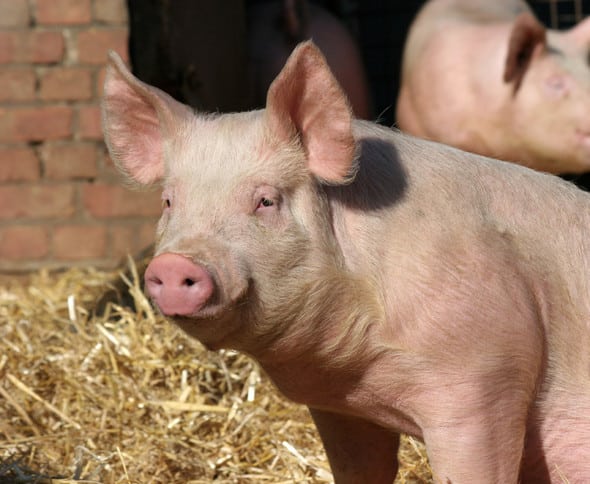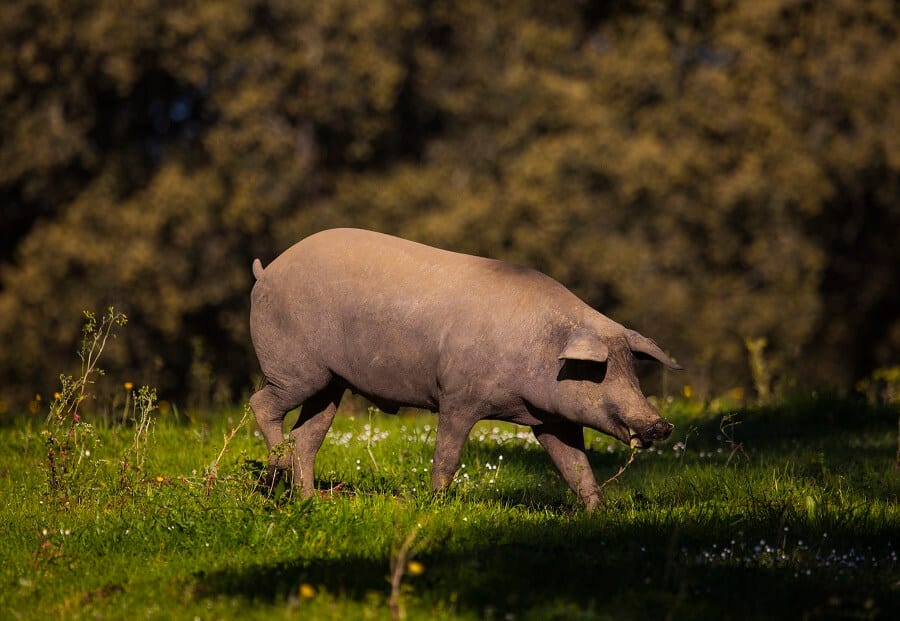Many people are interested to know why don’t Muslims eat pork? We will give them a clear answer in this article but Muslims and non-Muslims alike should be certain that this discussion will not lead to an inappropriate debate. Let me simply state unequivocally: in Islam, pork is considered “haram” (forbidden)
Muslims never eat pork
If You don’t know why don’t Muslims eat pork? you may have never seen a situation with a Muslim at a cafeteria or buffet before. What can I do for you? I’d want to find out if the fish and sausages were fried in the same oil. You may serve my eggs using a spoon that is different from the one used to serve the bacon, please.’ ‘Is this ham or turkey?’
To avoid pork, Muslims would do everything, even use the same spoon to serve their food! The ban on pork eating is taken quite severely. What is it about Muslims and pork that they abhor?
Islam is a whole way of life that includes not just spiritual practices like prayer, pilgrimage, and almsgiving, but also more mundane ones like what we eat and drink daily.
A healthy body and mind are equally important to Muslims. ‘We’ve all heard the phrase “you are what you eat.” The basic premise is that staying in shape and healthy may be achieved by eating whole, unprocessed foods. On the other side, if you eat foods harboring toxins you may have undesired health problems.
Pork consumption has been related to a wide range of health issues. Pork is not a choice for the world’s 2 billion Muslims, but rather a divine obligation. It is an act of worship to obey that order.
why don’t Muslims eat pork? the rationale behind the issue
Believers know that God is the Wisest and the Most Just and that His commandments are made to meet all of our needs, whether they be physical, emotional, or spiritual, in the most efficient way possible. In His wisdom, the Creator has determined the most effective means for His creatures to survive in this world and be ready for the next.
The exception to this rule is if the person’s life is in danger and they have no other choice than to eat the pig. Things that are normally banned can be used in an emergency.
God permits us to indulge in all that is good and lawful but forbids us from doing so in ways that might be damaging to our morals, beliefs, or physical or mental health. As a result, Muslims are aware of the hazards of consuming forbidden foods and so make determined attempts to find permitted foods, even if it requires additional time or price.

why don’t Muslims eat pork? detailed reasons
A Muslim devotes his or her life to worshiping God and abiding by His commandments. As a result, pork and its products are prohibited from being consumed.
while we are discussing why don’t Muslims eat pork? let us understand that Pork eating has been linked to several ailments, according to research. Eating pork exposes you to several helminths (worms), such as roundworm, pinworm, and hookworm, all of which can cause serious health problems. Taenia Solium, more often known as the pig tapeworm, is one of the most harmful worms.
Long-lasting, it lives in the digestive tract. There are several ways in which it may get into your body, including through your bloodstream. Memory loss is a possibility if it makes its way into the brain. There is a risk of heart attack, stroke, and liver damage if it gets into the heart or eyes. It has the potential to harm nearly every organ in the body.
that pigs are dirty, God is taking care of our health. Almost whatever it finds to eat it will consume, making it a scavenger. Eating well as maggots and rotting animal or vegetable waste, it also eats its waste and consumes many different poisons.
An omnivore (as opposed to herbivores like cows and sheep, which chew their cud), digests food rather quickly. It does not remove poisons and parasites from the pig’s fatty tissue, thus they accumulate there. Pork has a huge number of parasites and viruses that can be transmitted to humans by ingestion.
Unlike cattle and sheep, which have three chambers before the stomach, goats and pigs have two. As a result, the digestive system can process the meal and remove any toxins within 12-24 hours. The digestion process in poultry is further slowed by the presence of an extra chamber before the stomach.
Pork is a poor source of muscle-building protein and is high in fat. A buildup of this fat in the arteries can lead to hypertension and a heart attack. In light of the widespread use of pig products, hypertension is not surprising.
Pork is “Haram” for them, thus they avoid it. Pigs are forbidden for Muslims to consume under Islamic law. Haram is a word in Arabic that signifies prohibited.
Pork is, in a sense, off-limits. At least six times in the Holy Quran, Allah expressly bans Muslims from partaking in pork products.
To be more exact, the four chapters in which it is explicitly defined as “forbidden” are Surah Al-Baqarah, Al-Ma’idah, Al-An’am, and Al-Nahl.
The fact that pork includes parasites and illnesses dangerous to humans may come to mind as a justification for abstaining at first, as it is a product eaten in many areas of the world. However, when considering the primary reasons for Muslim dietary prohibitions, this becomes a minor consideration. Pig and pork products are forbidden in Islam, and Muslims do not eat them.
Some things that God has ordained and others that He has forbidden, we may never comprehend. Only in Quran 6: 145, when God declares, “for that surely is impure,” is there a particular explanation provided for the ban of pork. A Muslim doesn’t need to understand the reasons for God’s rule to submit to his or her voluntarily. Furthermore, God has said explicitly that a believer hears and obeys the words of his Lord.
Final Thoughts
After discussing why don’t Muslims eat pork? let’s say that In Islam, physical, spiritual, and emotional well-being are viewed as different but intertwined aspects of a person’s structure. God gave us a mission: to worship Him (Quran 51:56), yet He didn’t leave us to fend for ourselves in an uncertain world. Using the Quran and the example of Prophets and Messengers, he taught us that relying on God was the only path to success in this life and the afterlife.



